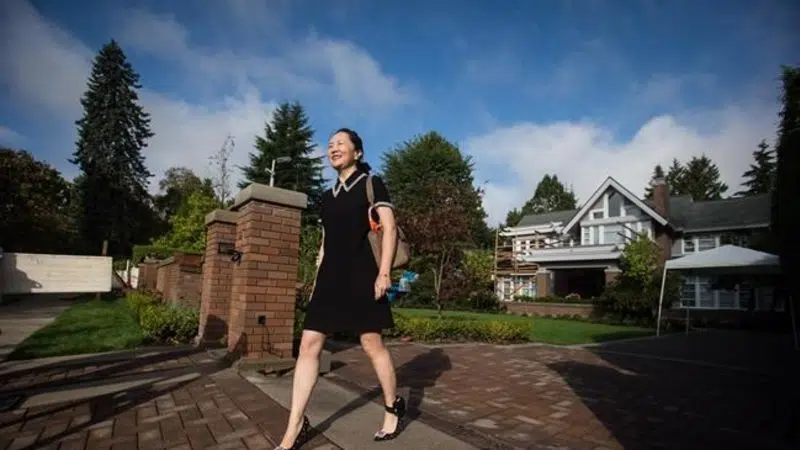
Nothing ‘routine’ about Meng Wanzhou’s treatment at Vancouver airport: defence
VANCOUVER — A lawyer for Huawei executive Meng Wanzhou denies her defence team is on a “fishing expedition” for documents to support its case.
Scott Fenton told B.C. Supreme Court on Tuesday that the team is not relying on conjecture, guess work or wishful thinking when it asks the court to compel the Attorney General of Canada to release further documents related to Meng’s arrest at Vancouver’s airport last December.
“We are not on a proverbial fishing expedition in any way,” Fenton said, adding that the defence will offer a more narrow and specific request for access Wednesday.
Meng’s legal team is arguing for further disclosure in an ongoing hearing ahead of Meng’s extradition trial, which begins in January.


